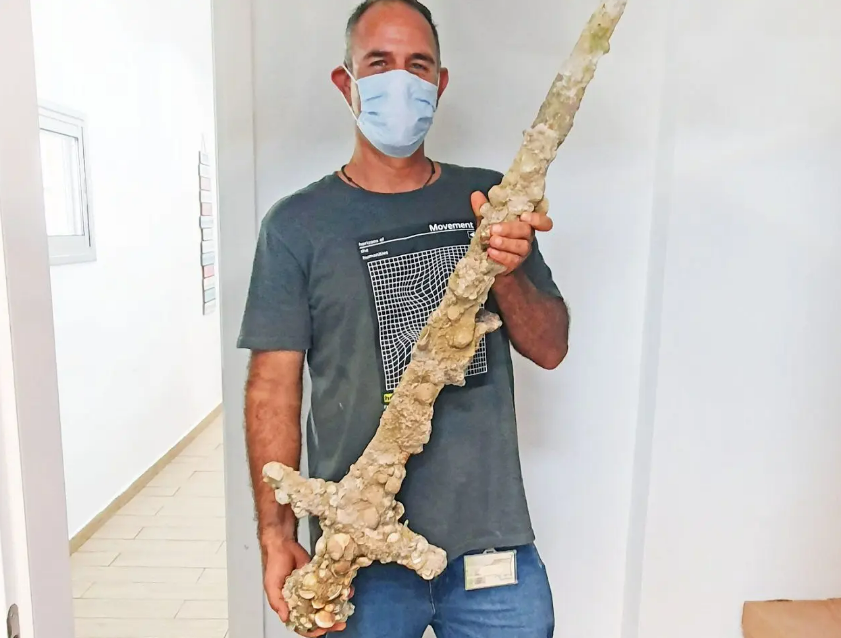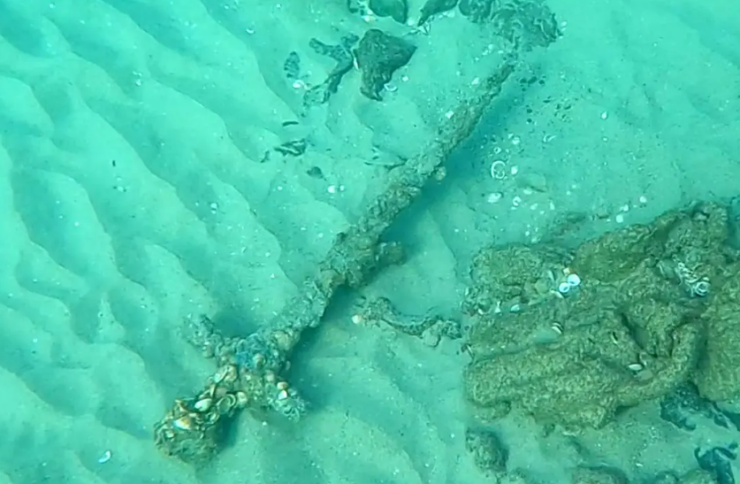A medieval sword was recently found off the coast of Hof Hacarmel in Israel, possibly lost in a naval battle during the Crusader period.
While researching stone and metal anchors on the seafloor in 2021, Shlomi Katzin came up the sword. The location was close to the historic port city of Haifa, which the Crusaders had taken from the Arabs at the beginning of the 12th century AD, and was a natural harbor for ships.
The experts describe how the sword was discovered encased in a heavy marine concretion of sand and shells, making it challenging to remove the metal without causing harm in a new report released by the Israel Antiquities Authority (IAA). The sword was saved from rust and disintegration in the water because the concretion slowed down the oxidation process.
The scientists used a thorough X-ray investigation to cut through the layers of concretions and discovered that the sword’s blade was around 88 cm long by 4.6 cm wide and appeared to have been twisted, presumably during fighting.
“The medieval sword was part of a knight’s or soldier’s personal equipment. It was the main weapon in face-to-face combat in those days,” says Dr. Joppe Gosker. “Swords required a lot of quality iron and were therefore expensive. In addition, sword fighting required training and practice, and therefore, only the nobility and professional soldiers fought with swords.”



The sword and its owner most likely fell into the water during a naval combat, according to the experts. The sword could have been on one of the ships that laid siege to the coastal cities, or perhaps it belonged to a knight who was on a ship returning home to Europe.
No more artifacts or signs of human remains have yet been uncovered in the region where it was located, but according to Gosker, “The soldier may still lie undiscovered in the depths, to be revealed one day by the shifting sands.”
Eli Escusido, Director of the Israel Antiquities Authority: “All along the coast of Israel, there are many finds buried beneath the sand and in the sea, and they are often lost forever, or sometimes discovered by chance. It is important that qualified archaeologists record the finds and their contexts.”
